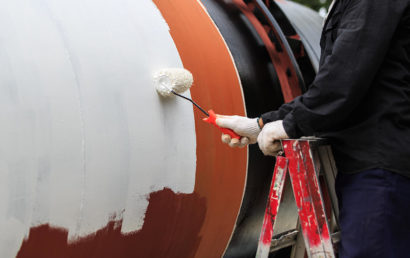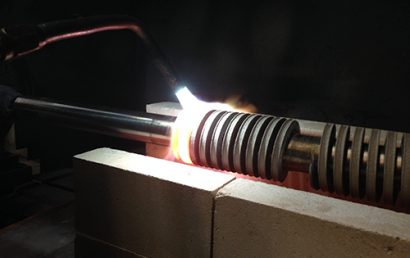Keeping Metal Corrosion In Check
Metal corrosion is something that is, unfortunately, common to many structural components which can be classified as ‘high performance’. No matter the material, corrosion and wear are inevitable. Or are they? Increasing the lifespan of today’s parts and components is a little something called corrosion resistant coating. As well as increasing lifespan, this process reduces replacement and maintenance costs. But there is more than one protective coating from which to choose. How do you know which coating is right for your components, parts, or products?
Determining The Appropriate Protective Coating
The kind of corrosion that materials experience is largely dependent on the conditions to which they are exposed and how the materials or parts are used. Corrosion can be classified by several various types: caustic agent, localized, general, stress cracking, or galvanic corrosion. Let’s take a look at each of those separately.
Caustic Agent Corrosion
This kind of corrosion happens when solids, liquids, or impure gases wear materials down. Metals in dry form are not ordinarily damaged by most impure gases. But when exposed to moisture, harmful corrosive droplets are formed when they dissolve. One such caustic agent is hydrogen sulfide.
Localized Corrosion
This happens when a tiny section of a component either comes into contact with stresses that cause specific corrosion or themselves experience corrosion. What happens is that the tiny affected area corrodes at a rate faster than the majority of the component. Working alongside other processes (i.e. fatigue and stress), the area of corrosion causes a result that is worse than it would have been by fatigue or stress alone.
General Corrosion
The culprit here is rust. When metals such as steel are exposed to water, their surface oxidizes forming a thin layer of rust. Similar to galvanic corrosion, this type of corrosion is electrochemical. If you want to stop oxidation, the protective coatings discussed here are necessary to prevent the reaction.
Stress Corrosion Cracking
When this happens, frequently, components end up irreparable. SCC, or stress corrosion cracking, often happens along grain boundary when a component is subjected to extreme tensile stress. Further corrosion settles into cracks that are formed. Thermal treatment, welding, and cold work are some causes of SCC. Combine exposure to an environment with these factors and stress cracking can be intensified and increased. As a result, minor stress corrosion turns into irreparable damage or component failure.
Galvanic Corrosion
When a couple of metals having different electrochemical charges are joined through a conductive path, this extremely common corrosion occurs. This condition, caused by the use of impure metals or the transfer of ions, can be prevented by a corrosion resistant coating. When an electrical current is not present, the corrosion suffered by the metals involved is more uniform and results in the previously discussed general corrosion.
Using Coatings for Corrosion Resistance
Depending on what kind of corrosion you want to prevent and the kind of metal that is going to be involved, different corrosion resistant coatings will be used.
Aluminum and zinc are helpful in coatings meant to prevent iron and steel alloy galvanic corrosion. Applications such as energy windmills and bridges are examples.
Stress cracking can be avoided through the blockage of hydrogen absorption by a coating of cadmium on bolts, threaded fasteners, and iron and steel fasteners.
Additional corrosive coatings can contain cobalt chromium and nickel chromium. They are moisture resistant, have a very low level of ferocity, and therefore assist in inhibiting rust development and the metal’s eventual deterioration.
Wear resistant coatings are made up of ceramic metal mixes and oxide ceramics. In addition to being corrosion resistant, they are actively wear resistant.
If you would like to find out what kind of coating will best protect your parts, components, or products, get in touch with someone at A&A Coatings. Our knowledgeable staff can answer all your questions and help you with determining what kind of protection you need and how to go about getting it.



